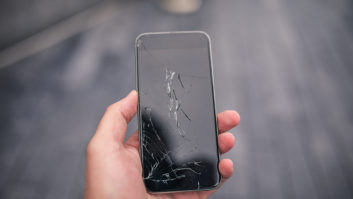
As any parent can attest, the tops of kids’ heads are becoming more familiar than their faces, which are usually buried in a mobile device.
Adults are no better, with legions assuming an eyes-down stance as they walk, talk and dine.
Psychologists and sociologists may opine about Android and iOS addiction, but in an ironic twist, Motorola Mobility, which invented the first cellular phone 44 years ago, is doing something about it.
The Lenovo subsidiary first set out to quantify the problem of “phone-life balance” through a survey developed by Dr. Nancy Etcoff, an expert in mind-brain behavior and the science of happiness at Harvard University and a psychologist at Massachusetts General Hospital Department of Psychiatry. Among the findings of the Ipsos-conducted poll:
- One-third (33 percent) of respondents prioritize their smartphone over engaging with people they care about;
- Nearly half (49 percent) check their phones more often than they would like, while 44 percent feel compelled to do so constantly; and
- Nearly two-thirds (65 percent) admit they “panic” when they think they’ve lost their smartphone, and three in ten (29 percent) agree that when they’re not using their phone they’re thinking about doing so or planning the next time they can.
Motorola: How Many Times A Day Do You Look Like This?
The problem is even more pronounced among younger generations, Motorola said, which are putting phones before people in alarming numbers.
To help curb phone addiction, Motorola is promoting the Space Phone-Life Balance app, a 60-day program to help smartphone owners become more mindful of their phone usage and control compulsive checking with screen dimming, notification blockers and other features.
The company, through a partnership with Indiegogo, is also soliciting developers for new snap-on Moto Mod attachment concepts that can help owners achieve that phone-life balance, while its phones’ ambient Moto Display feature allows users to respond to screen alerts without waking the phone and “going down the ‘rabbit hole,’” it said.
Motorola said it launched the initiative because “As the creator of the first-ever mobile phone, we feel responsible to understand the impact of this rapidly-developing technology and the desire to have it support our lives without becoming the center of it.”
Observed Dr. Etcoff: “For the majority of smartphone users, their problematic behaviors are mindless responses and bad habits that they need help in overcoming. Behavioral nudges, environmental control, and mindfulness will all help, as will the efforts of those within the smartphone industry.”
To see where you fall on the phone-life balance scale, Motorola invites you to take an anonymous, 10-question quiz to determine if you’re “mindfully mobile” or an out-and-out “phonatic.”











